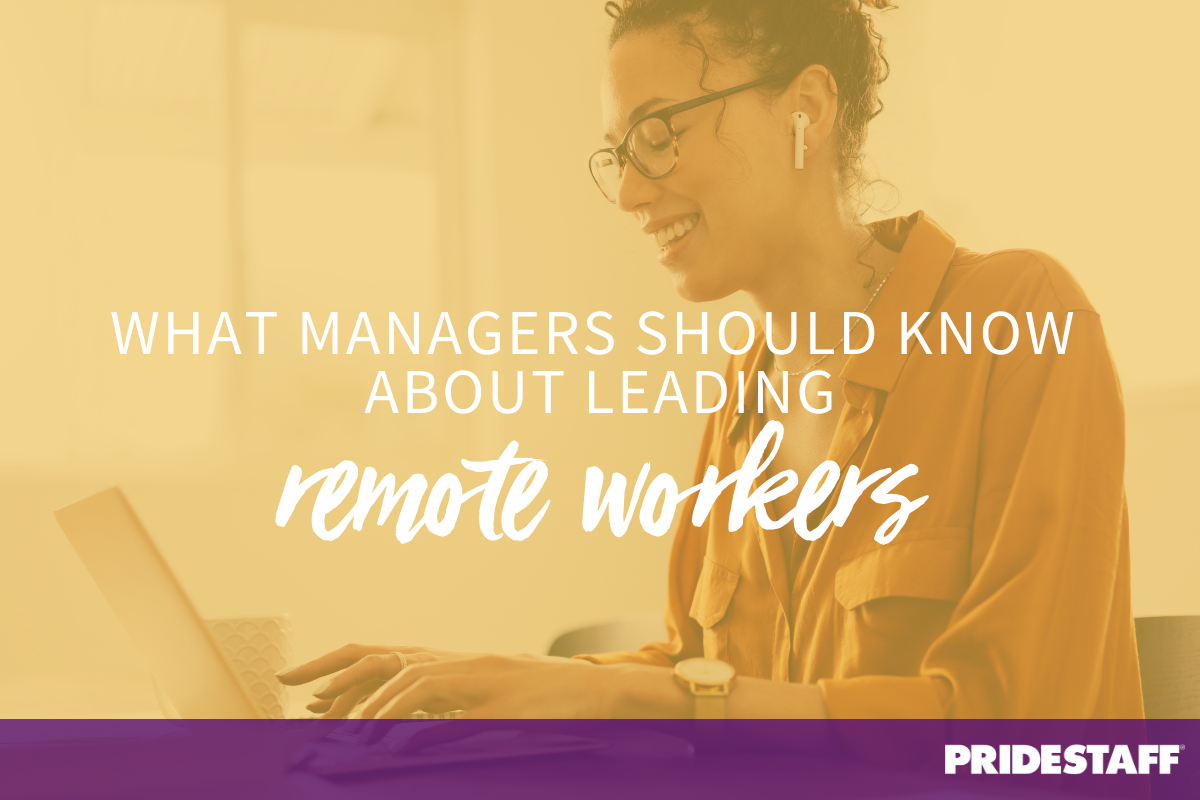Leading Remote Workers: What Managers Need to Know

If you have never managed a remote team, you might be starting the venture with some misconceptions. You may think remote workers do best when left entirely to their own devices. On the other hand, you could believe people who work from home must be watched closely to ensure they are getting their work done. The answer lies somewhere in between.
Loosen Up
We surveyed more than 1,000 of our employees to ask questions about remote work. One of the most commonly cited frustrations was micromanagers—supervisors who didn’t trust them to get the work done. Symptoms of micromanagement of remote employees include insisting on a strict schedule, even if it’s not necessary to the business, or assigning a task, then asking for constant status updates. It can also be giving explicit instructions on how to perform a task rather than letting employees find their own way of achieving the goal.
Offer Guidance
While employees don’t like being micromanaged, that doesn’t mean they want their managers to be completely hands-off. They like when managers check in with them to see how they are doing. They want you to offer feedback and be available for questions. Set up regular one-on-ones so employees know they can count on hearing from you regularly. Video is best for building a connection. Talk to your employees to find out how frequently they’d like them to interact with you. Once a week may be plenty for some, too much for others. Some employees will need more.
Establish KPIs
Employees in our survey reported they were most satisfied when given clear expectations and goals by their managers. Measuring productivity among remote employees is essential when “management by walking around” is not an option. If employees are accomplishing their objectives well and on time, you can loosen the reins a bit if that’s what they want. Conversing, you’ll be able to tell when an employee is struggling and can offer a bit more support. On the other hand, you may find a particular employee simply isn’t suited for working from home.
Maintain Flexibility
Remote work can be unpredictable – particularly if it’s unplanned. Be ready to adapt to anything that may arise. Equipment can fail. Employees can have non-work obligations to take care of. COVID protocols could go on longer than any of us expect. If possible, allow employees to set their own schedules as long as work is done correctly and on time.
PrideStaff is here to help.
A successful remote team depends on the right leadership. Download PrideStaff’s new whitepaper, The Remote Work Experience: What Employees Want You to Know, for more insight on managing remote teams.



